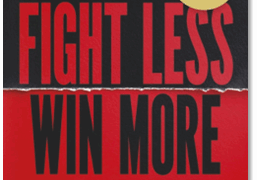
Penguin India presents Revolutionary essays written in Kesari by Bal Gangadhar Tilak translated in English for the first time
In celebration of India’s Republic Day, explore the revolutionary thoughts of Lokmanya Bal Gangadhar Tilak through a collection of his powerful essays from Kesari. Translated by Nadeem Khan and Yashodhan Parande, this book sheds light on Tilak’s vision for Swaraj, nationalism, women’s rights, and India’s future.
About The Book:
Lokmanya Bal Gangadhar Tilak was one of the first and central figures of Indian nationalist movement. He was a radical and upheld the concepts of Swadeshi, Boycott of foreign goods and gave the slogan “Swaraj is our Birthright and We shall have it”. Kesari became the mouthpiece of Tilak’s political ideas and that of the Indian nationalist movement.
The book includes essays published in Kesari between 1886 and 1918 on topics ranging from the Indian National Congress, Economy to Nationalism, and expresses Tilak’s views on sedition, women’s rights and education. Translated by Nadeem Khan and Yashodhan Parande, the essays are a peek into the crucial moments of Indian history and the ideas of Lokmanya Tilak.
About The Author:
Lokmanya Bal Gangadhar Tilak (1856 – 1920) was born in Ratnagiri district of the present day Maharashtra. After completing his BA degree in Mathematics from the Deccan College, he started teaching. Tilak soon started Kesari in Marathi and Maharatta in English which became leading newspapers of the Deccan and the mouthpiece of Indian Nationalist movements. He along with Ganesh Agarkar set up the Deccan Educational Society. He joined the Indian National Congress in 1880 and formed close relationships with Lala Lajpat Rai, and Bipin Chandra Pal. Tilak popularised the concepts of Swadeshi, Boycott and Swaraj much before Mahatma Gandhi. He was referred to as the ‘Father of Indian Unrest’ and was arrested multiple times on charges of sedition.
Translator Bio:
Nadeem Khan has been a teacher of English since 1973, retiring as Associate Professor in 2010. He was the founder Director of the Western Regional Centre of the Indian Institute of Mass Communication, Ministry of Information and Broadcasting, from 2011 to 2018. He has translated a score of books, mainly from Marathi to English. His translation of Avadhoot Dongare’s The Story of being Useless won him the ‘Valley of Words’ award for 2020. His translation of Dongare’s Leaf, Water and Flow figured in the long-list of the JCB Award of 2024. His translation of Vishwas Patil’s Dudiya figured in the long-list of the Crossword Award of 2024. Among his other acclaimed translations are Babasaheb : Life with Dr. Ambedkar, Vishwas Patil’s Panipat and Shivaji Mahasamrat. He has also translated other celebrated Marathi authors like Bhau Padhye, Rangnath Pathare and Anant Deshmukh.
Yashodhan Parande is a former civil servant who joined the Indian Revenue Service, Customs and C. Excise (now Customs and Indirect Taxes) in 1975. He retired from the service as a Member of the Central Board of Excise and Customs 2011. Post his retirement, he was appointed as a Member of the Tax Administration Reform Commission (2013-2015) that recommended a wide range of measures for reforming the tax administration – covering direct as well as indirect taxes – of the central government. Yashodhan’s passions are reading, travel and music. After a life-long career as a civil servant, he now devotes himself to translating important works from Marathi into English in order to make them accessible to a wider readership.
The official release for the book is in February 2025.
[the_ad id=”55722″]


















